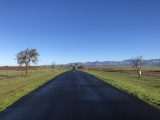First Draft Dread - The Stages
The subject of this post arises just about every time I start a first draft. It’s like I’ve never written one before. It’s like I have amnesia. But, the truth is, I’ve actually finished a book or two and they’ve been published. So?
These are the stages I go through:
Stage 1. I can’t do this. I don’t want to do this. It’s like sitting in a rowboat without oars, watching a small hole in the bottom grow.

When that happens, grab a life vest (never write a draft without one). A life vest may consist of:
– Taking a short, and I mean SHORT, break, preferably outdoors, maybe skygazing, birdwatching or just casually strolling. Even whistling or singing a jaunty tune can change a mood.
– Reading something by someone you admire or that gives you a lift. Anything that promotes constructive, positive thoughts
Stage 2. Why is it taking me so long? I can’t believe the words don’t just pour out of my fingers by now. Haven’t I learned anything? I have learned at least one thing: that I need to be kinder and more patient with myself when writing the dreaded draft. And I need to unlearn or cast aside the thoughts in Stage 1.
Stage 3. Before I start writing the draft, I tell myself, “I’m glad I created an outline for this installment. It’ll make writing much easier!” Once I start writing, I tell myself, “I’m not using the outline. It’s not fun to know what happens next.” Translation: I prefer to drive myself crazy. What I should be thinking is: flexibility and readiness to change are superstar attributes. They also help the flow of creative juices. Yes, go with the flow.
Stage 4. While writing the draft, I keep thinking back to the opening chapter. It’s too dull. Nothing happens. Then I firmly remind myself: once you finish the WHOLE draft, the welcome mat for revisiting will be awaiting. That’s exactly what I did on Books Two and Five. I went back and created new first chapters. Multiple changes are permitted. No one’ll ever know or care. Here’s a secret: you actually can make that and other changes any time, if it helps you forge ahead.
Stage 5. The dialogue stinks. Everyone sounds the same. My reply: So what? Because, you can…refer to Stage 4, the last three lines.
Wasn’t that simple? Excuse me, I really should get back to writing my first draft.
Writing is hard, but the more you write, and enjoy what you write, the better it gets. (Alice Munro)



















